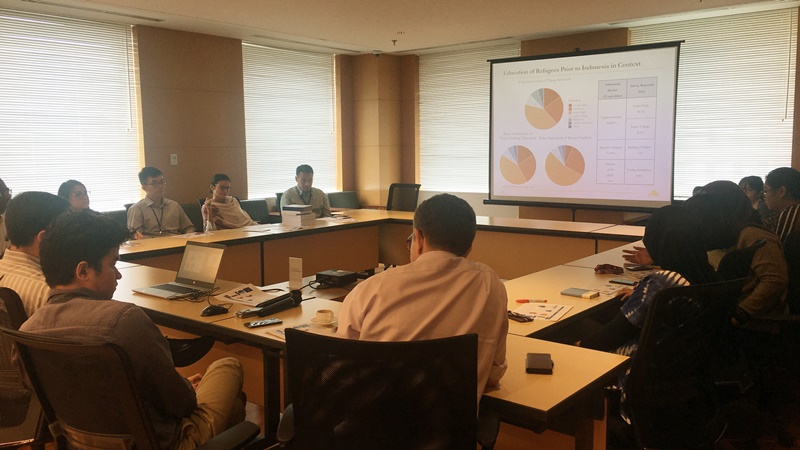Sandya Institute Describes Labour Characteristics of Refugees in Indonesia
Date:
18 December 2019Category:
NewsTopics:
Indonesia, Labour and MigrationShare Article:
Print Article:
Jakarta, 18 December 2019: The Economic Research Institute for ASEAN and East Asia (ERIA) hosted roundtable lunch discussion with Sandya Institute (Sandya) on their newly published research, ‘Unlocking the Economic Potentials of Indonesia's Refugee Community: A Survey on Labour Characteristics’. Sandya, an Indonesian non-profit works on peacebuilding, countering violent extremism, and human rights advocacy. Their report has been presented to Indonesian policy-makers and has received the endorsement of the United Nations High Commissioner for Refugees Indonesia as well as several refugee-led organizations. The publication aims to increase awareness and propose policies to address the problems that refugees in Indonesia face while awaiting resettlement by the United Nations.
The research was led by Matthew LoCastro, a Luce Scholar with ERIA and Research Manager for Sandya, since its inception in September of 2018. The report highlighted demographic characteristics, living expenses, employment profiles, and educational and language levels for over 16% of working age refugees in Indonesia. LoCastro’s team collected 1,605 surveys throughout Jakarta, Medan, and Makassar with the assistance of 65 refugee leaders.
LoCastro explained that refugees currently are prohibited from working and face numerous barriers in pursuing educational opportunities. The report’s proposed policies outline a framework for refugees to seek temporary employment and temporary higher-education opportunities while awaiting resettlement. LoCastro shared that ‘a path to self-sustaining livelihood can be realized by developing apprenticeship programs in coordination with existing employment opportunities as well as decriminalizing and creating regulatory exceptions for temporary refugee-led entrepreneurial venters.’ Furthermore, LoCastro shared a preliminary framework for integration of refugees into higher-education institutions.
The discussion concluded with some questions to LoCastro, providing further insights into the current livelihood of refugees in Indonesia. ERIA thanks Sandya Institute for their time and are happy to have shared in this discussion.








